Dealing with Over-Salted Tomato Sauce: Causes, Effects, and Solutions Introduction: Tomato sauce is a versatile and essential ingredient in countless culinary recipes. From pasta dishes to pizzas and stews, its rich and tangy flavor enhances a wide range of dishes. However, sometimes the balance of flavors can go awry, and one common issue faced by many home cooks and professional chefs is an over-salted tomato sauce. This article seeks to explore the causes of over-salted tomato sauce, its effects on different dishes, and provides practical solutions to correct this seasoning mishap. Causes of Over-Salted Tomato Sauce: 1. Slip of the hand: While cooking, it’s easy to accidentally add an excessive amount of salt to tomato sauce. This can happen due to pouring too quickly or overestimating the amount needed. 2. Inadequate tasting: Lack of taste testing throughout the cooking process can lead to oversalting. The flavors in tomato sauce tend to concentrate as it cooks, and without regular sampling, the salt content can easily become overpowering. 3. High sodium content in ingredients: Some canned tomato products or pre-made sauces contain high levels of sodium. Combining these with additional salt can result in an over-salted final product. Effects of Over-Salted Tomato Sauce: 1. Unpleasant taste: Excess salt masks the natural flavors of tomatoes and other ingredients in the sauce, resulting in an unpalatable and overpowering taste. 2. Disruption of overall dish balance: Tomato sauce is often used as a base for various recipes, and oversalting can throw off the balance of flavors in the final dish. This can make it challenging for other ingredients to shine and create a well-rounded flavor profile. 3. Health implications: High sodium intake has been linked to various health issues, including elevated blood pressure, heart disease, and increased risk of stroke. An over-salted tomato sauce may contribute to exceeding daily sodium recommendations. Solutions for Fixing Over-Salted Tomato Sauce: 1. Dilution method: – Prepare an additional batch of unsalted tomato sauce or use canned tomatoes to dilute the over-salted sauce. Adjust the quantities to maintain the desired consistency. – Gradually mix in the unsalted sauce with the over-salted one, tasting intermittently until the desired salt level is achieved. – If dilution alone is not sufficient, incorporate additional ingredients such as water, unsalted stock, or low-sodium vegetable juice to further lessen the saltiness.
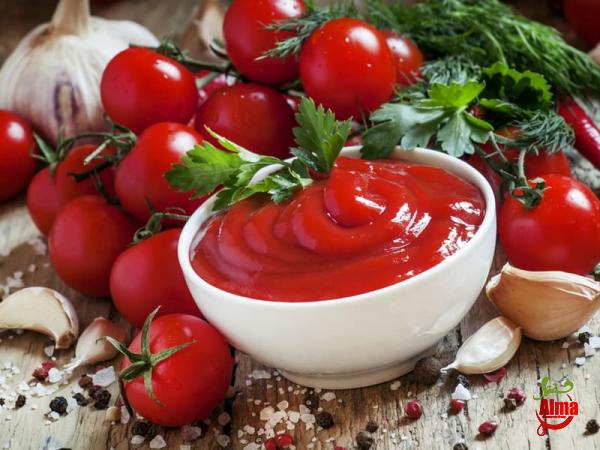
tomato paste
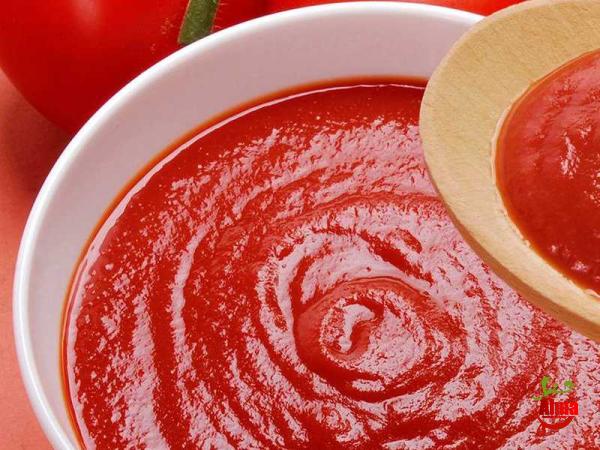 2. Masking flavors: – Increase the volume of the sauce by adding more tomatoes or other vegetables to dilute the saltiness. – Introduce acidic ingredients like lemon juice, vinegar, or citric acid to counterbalance the saltiness. Be cautious not to overdo the acidity, as it can negatively impact the overall balance of flavors. – Sweetening agents, such as sugar, honey, or maple syrup, can help reduce the perception of saltiness. Add them sparingly and taste as you go to avoid making the sauce excessively sweet. 3. Absorption method: – If time permits, gently simmer the over-salted sauce with a peeled potato for approximately 10-15 minutes. The potato will absorb some of the excess salt. Remove the potato before serving. – Another method is to add a slice of bread or a small amount of uncooked rice to the sauce and allow it to simmer for a short period. These absorbent ingredients can help to reduce the saltiness. Preventing Over-Salted Tomato Sauce: 1. Regular tasting and seasoning: Continuously taste the sauce as it cooks, adjusting the seasoning gradually to prevent over-salting. Remember that flavors mellow and intensify as the sauce simmers, so balance is key. 2. Choose low-sodium ingredients: Opt for low-sodium canned tomatoes or tomato products when purchasing pre-made sauces. This can help reduce the overall salt content in the final dish. 3. Use natural flavor enhancers: Experiment with herbs, spices, and other flavor-boosting ingredients to enhance the taste of the sauce. This way, you can rely less on salt for seasoning.
2. Masking flavors: – Increase the volume of the sauce by adding more tomatoes or other vegetables to dilute the saltiness. – Introduce acidic ingredients like lemon juice, vinegar, or citric acid to counterbalance the saltiness. Be cautious not to overdo the acidity, as it can negatively impact the overall balance of flavors. – Sweetening agents, such as sugar, honey, or maple syrup, can help reduce the perception of saltiness. Add them sparingly and taste as you go to avoid making the sauce excessively sweet. 3. Absorption method: – If time permits, gently simmer the over-salted sauce with a peeled potato for approximately 10-15 minutes. The potato will absorb some of the excess salt. Remove the potato before serving. – Another method is to add a slice of bread or a small amount of uncooked rice to the sauce and allow it to simmer for a short period. These absorbent ingredients can help to reduce the saltiness. Preventing Over-Salted Tomato Sauce: 1. Regular tasting and seasoning: Continuously taste the sauce as it cooks, adjusting the seasoning gradually to prevent over-salting. Remember that flavors mellow and intensify as the sauce simmers, so balance is key. 2. Choose low-sodium ingredients: Opt for low-sodium canned tomatoes or tomato products when purchasing pre-made sauces. This can help reduce the overall salt content in the final dish. 3. Use natural flavor enhancers: Experiment with herbs, spices, and other flavor-boosting ingredients to enhance the taste of the sauce. This way, you can rely less on salt for seasoning.
Specifications of tomato paste
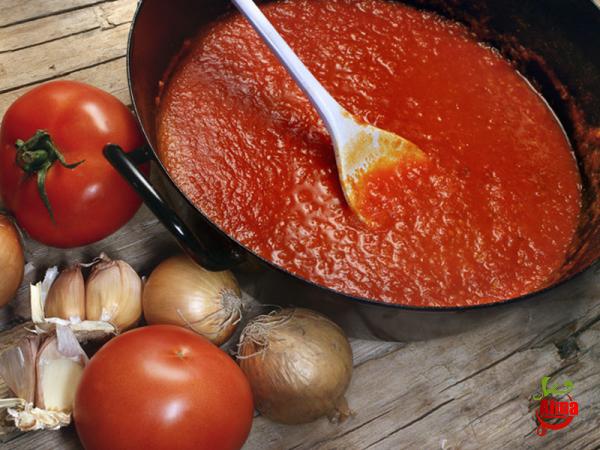 Conclusion: Over-salted tomato sauce can be a culinary setback, but with the right knowledge and techniques, it’s possible to salvage the dish and regain its desired taste. Dilution methods, flavor masking, and absorption techniques can help remedy an over-salted sauce, allowing the flavors to harmonize once again. However, prevention is always better than correction, and being mindful of the salt content throughout the cooking process can save time, effort, and avoid potential health complications. So, the next time you encounter an over-salted tomato sauce, rest assured that there are simple, effective solutions at your disposal to rectify the situation.10-12 Detailed Paragraphs with Business Headings: 1. The Impact of Over-Salted Tomato Sauce on Restaurants: The overuse of salt in tomato sauce can have detrimental effects on restaurants. It can lead to increased customer dissatisfaction and negative reviews, damaging the establishment’s reputation. Customers expect well-balanced and flavorful dishes, and an excessively salty tomato sauce can ruin their dining experience. Restaurants must strive to maintain consistency in taste and quality, ensuring that their tomato sauce is properly seasoned to avoid the issues associated with oversalting. 2. Overcoming Challenges in Commercial Tomato Sauce Production: Commercial production of tomato sauce on a large scale presents unique challenges when it comes to maintaining the right salt levels. To address this, manufacturers can carefully measure and control the salt content during the production process. Implementing quality control procedures, regularly taste-testing the sauce batches, and using low-sodium ingredients can help ensure consistency and avoid oversalting. 3. Creative Solutions for Over-Salted Tomato Sauce: Chefs and home cooks can get creative when salvaging an over-salted tomato sauce. In addition to the traditional dilution and masking methods discussed earlier, there are other inventive techniques that can be employed. For example, incorporating natural umami-rich ingredients like mushrooms, fish sauce, or miso paste can help balance out the saltiness of the sauce while adding depth and complexity to the flavors. 4. The Role of Customer Feedback in Improving Tomato Sauce Quality: Restaurants and food establishments can benefit greatly from customer feedback regarding the flavor and saltiness of their tomato sauce. Encouraging customers to provide feedback allows for continuous improvement and adjustment of recipes. It is also essential to train staff in properly tasting and seasoning dishes, ensuring that oversalted tomato sauce is detected and corrected before it reaches the customer’s plate. 5. Over-Salted Tomato Sauce and Health-conscious Consumers: In today’s health-conscious society, many consumers are mindful of their sodium intake and seek healthier options. Restaurants can tap into this market by offering low-sodium or even salt-free tomato sauce as an alternative. By catering to the needs of health-conscious consumers, establishments can differentiate themselves and attract a wider customer base.
Conclusion: Over-salted tomato sauce can be a culinary setback, but with the right knowledge and techniques, it’s possible to salvage the dish and regain its desired taste. Dilution methods, flavor masking, and absorption techniques can help remedy an over-salted sauce, allowing the flavors to harmonize once again. However, prevention is always better than correction, and being mindful of the salt content throughout the cooking process can save time, effort, and avoid potential health complications. So, the next time you encounter an over-salted tomato sauce, rest assured that there are simple, effective solutions at your disposal to rectify the situation.10-12 Detailed Paragraphs with Business Headings: 1. The Impact of Over-Salted Tomato Sauce on Restaurants: The overuse of salt in tomato sauce can have detrimental effects on restaurants. It can lead to increased customer dissatisfaction and negative reviews, damaging the establishment’s reputation. Customers expect well-balanced and flavorful dishes, and an excessively salty tomato sauce can ruin their dining experience. Restaurants must strive to maintain consistency in taste and quality, ensuring that their tomato sauce is properly seasoned to avoid the issues associated with oversalting. 2. Overcoming Challenges in Commercial Tomato Sauce Production: Commercial production of tomato sauce on a large scale presents unique challenges when it comes to maintaining the right salt levels. To address this, manufacturers can carefully measure and control the salt content during the production process. Implementing quality control procedures, regularly taste-testing the sauce batches, and using low-sodium ingredients can help ensure consistency and avoid oversalting. 3. Creative Solutions for Over-Salted Tomato Sauce: Chefs and home cooks can get creative when salvaging an over-salted tomato sauce. In addition to the traditional dilution and masking methods discussed earlier, there are other inventive techniques that can be employed. For example, incorporating natural umami-rich ingredients like mushrooms, fish sauce, or miso paste can help balance out the saltiness of the sauce while adding depth and complexity to the flavors. 4. The Role of Customer Feedback in Improving Tomato Sauce Quality: Restaurants and food establishments can benefit greatly from customer feedback regarding the flavor and saltiness of their tomato sauce. Encouraging customers to provide feedback allows for continuous improvement and adjustment of recipes. It is also essential to train staff in properly tasting and seasoning dishes, ensuring that oversalted tomato sauce is detected and corrected before it reaches the customer’s plate. 5. Over-Salted Tomato Sauce and Health-conscious Consumers: In today’s health-conscious society, many consumers are mindful of their sodium intake and seek healthier options. Restaurants can tap into this market by offering low-sodium or even salt-free tomato sauce as an alternative. By catering to the needs of health-conscious consumers, establishments can differentiate themselves and attract a wider customer base.
buy tomato paste
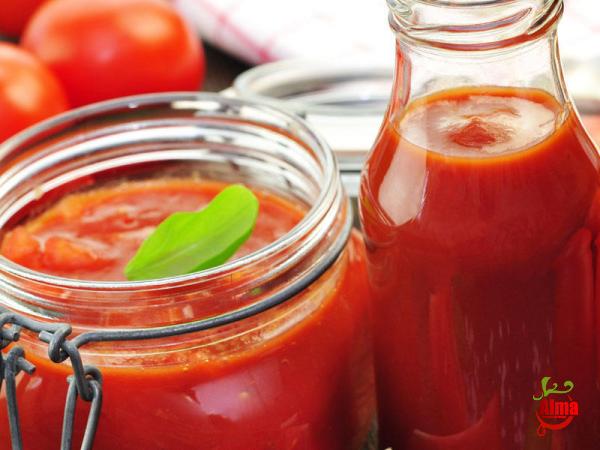 6. The Importance of Proper Labeling and Nutrition Information: Food manufacturers and restaurants have a responsibility to provide accurate nutritional information on their products, including sodium content in tomato sauce. Transparent labeling allows consumers to make informed decisions about their food choices, especially for those who need to monitor their sodium intake due to dietary restrictions or health concerns. 7. Exploring Low-Sodium Alternatives for Tomato Sauce: As the demand for low-sodium options continues to rise, food manufacturers and restaurants can explore alternative ingredients and flavoring agents to create flavorful yet low-sodium tomato sauces. They can experiment with herbs, spices, and innovative seasoning blends to enhance the taste without relying heavily on salt. This not only caters to health-conscious consumers but also presents a unique selling point in a competitive market. 8. Education and Training for Culinary Professionals: Culinary schools and professional development programs should emphasize the importance of proper seasoning techniques and flavor balancing. By providing comprehensive education on salt usage and alternatives, aspiring chefs can understand the significance of balanced flavors and avoid oversalting tomato sauce in their future culinary endeavors. 9. Collaborating with Suppliers to Ensure Quality: Food establishments can strengthen their relationships with suppliers to ensure the quality of their tomato sauce ingredients. This includes sourcing low-sodium canned tomatoes, high-quality tomato pastes, and other essential components. Building a reliable supply chain ensures that the establishment can consistently produce excellent tomato sauce and minimize the risk of oversalting. 10. Public Advocacy for Reduced Sodium Consumption: To combat the issue of oversalted tomato sauce, there is a need for public advocacy and awareness campaigns promoting reduced sodium consumption. Collaborative efforts between government health agencies, consumer advocacy groups, and food industry stakeholders can help educate the public about the risks of excessive sodium intake and encourage healthier eating habits. Conclusion: While oversalted tomato sauce can pose challenges to both home cooks and food establishments, there are practical solutions available to rectify and prevent this issue. Dilution, masking, and absorption methods offer effective ways to salvage oversalted tomato sauce, while education, training, and collaboration among culinary professionals and suppliers can help maintain consistent quality. By being mindful of sodium content, exploring low-sodium alternatives, and prioritizing customer feedback, the culinary industry can overcome the problem of oversalted tomato sauce and deliver well-balanced, flavorful dishes that delight customers and promote healthier eating choices.
6. The Importance of Proper Labeling and Nutrition Information: Food manufacturers and restaurants have a responsibility to provide accurate nutritional information on their products, including sodium content in tomato sauce. Transparent labeling allows consumers to make informed decisions about their food choices, especially for those who need to monitor their sodium intake due to dietary restrictions or health concerns. 7. Exploring Low-Sodium Alternatives for Tomato Sauce: As the demand for low-sodium options continues to rise, food manufacturers and restaurants can explore alternative ingredients and flavoring agents to create flavorful yet low-sodium tomato sauces. They can experiment with herbs, spices, and innovative seasoning blends to enhance the taste without relying heavily on salt. This not only caters to health-conscious consumers but also presents a unique selling point in a competitive market. 8. Education and Training for Culinary Professionals: Culinary schools and professional development programs should emphasize the importance of proper seasoning techniques and flavor balancing. By providing comprehensive education on salt usage and alternatives, aspiring chefs can understand the significance of balanced flavors and avoid oversalting tomato sauce in their future culinary endeavors. 9. Collaborating with Suppliers to Ensure Quality: Food establishments can strengthen their relationships with suppliers to ensure the quality of their tomato sauce ingredients. This includes sourcing low-sodium canned tomatoes, high-quality tomato pastes, and other essential components. Building a reliable supply chain ensures that the establishment can consistently produce excellent tomato sauce and minimize the risk of oversalting. 10. Public Advocacy for Reduced Sodium Consumption: To combat the issue of oversalted tomato sauce, there is a need for public advocacy and awareness campaigns promoting reduced sodium consumption. Collaborative efforts between government health agencies, consumer advocacy groups, and food industry stakeholders can help educate the public about the risks of excessive sodium intake and encourage healthier eating habits. Conclusion: While oversalted tomato sauce can pose challenges to both home cooks and food establishments, there are practical solutions available to rectify and prevent this issue. Dilution, masking, and absorption methods offer effective ways to salvage oversalted tomato sauce, while education, training, and collaboration among culinary professionals and suppliers can help maintain consistent quality. By being mindful of sodium content, exploring low-sodium alternatives, and prioritizing customer feedback, the culinary industry can overcome the problem of oversalted tomato sauce and deliver well-balanced, flavorful dishes that delight customers and promote healthier eating choices.
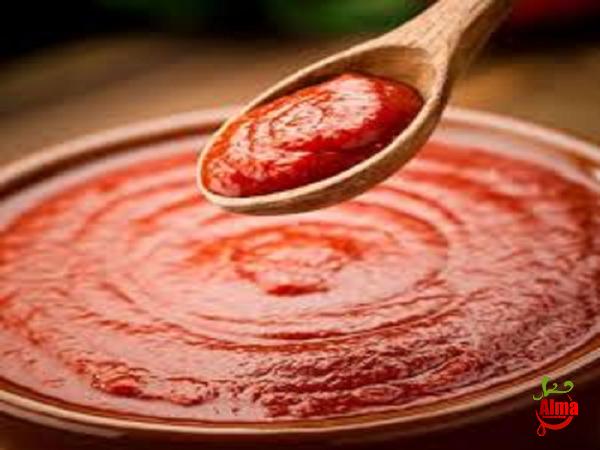

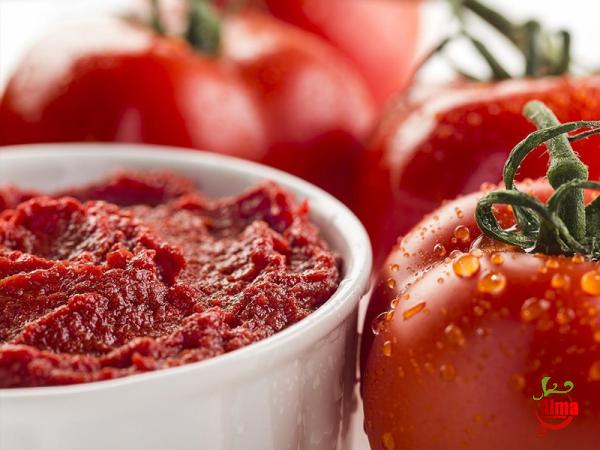
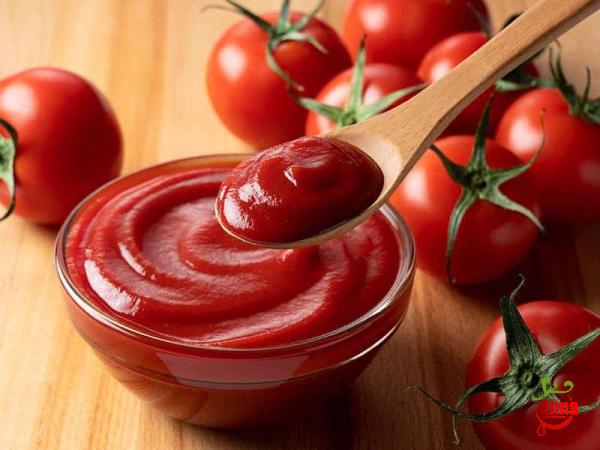




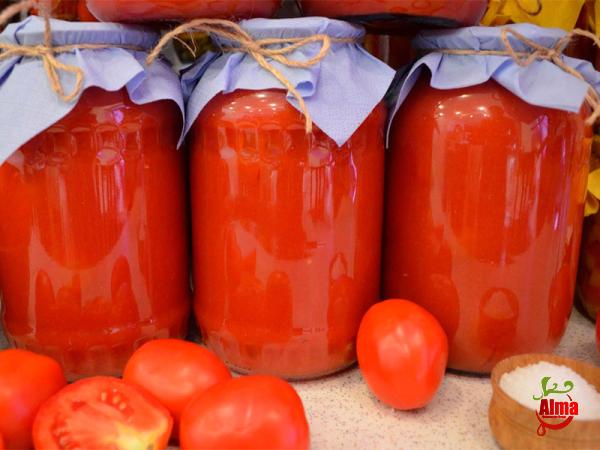
Your comment submitted.